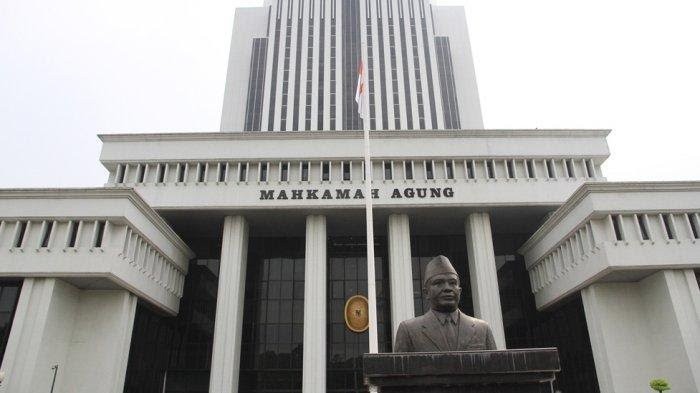Popular Reads
Top Results
Can't find what you're looking for?
View all search resultsPopular Reads
Top Results
Can't find what you're looking for?
View all search resultsKPK chides Supreme Court for leniency toward graft convicts
Change text size
Gift Premium Articles
to Anyone
T
he Corruption Eradication Commission (KPK) has criticized the Supreme Court’s recent record of granting judicial reviews of graft cases that have often led to lighter punishment than originally ruled.
According to the KPK, at least 20 graft cases handled by the commission between 2019 and 2020 were “botched” by the Supreme Court’s supposedly lenient rulings.
“The KPK is dismayed by the Supreme Court’s mounting approvals of case review requests,” KPK spokesperson Ali Fikri said in a statement on Monday as quoted by tribunnews.com.
Ali added that the tendency to lessen punishments for graft convicts could paint a negative image of the country’s legal system as a whole.
“As the vanguard of justice, the KPK believes that this phenomenon will contribute to a poor public image […], which in turn will erode public trust in legal institutions,” he said, adding that corruption eradication efforts required a strong commitment and a shared vision within the legal system.
Ali called on the Supreme Court to issue a regulation on such matters to ensure fair legal outcomes.
A petition for judicial review contributed recently to the reduction of a prison sentence for National Awakening Party (PKB) lawmaker Musa Zainuddin, who was convicted of graft in 2017, from nine years to six years.
In contrast, the Supreme Court has earlier issued a new regulation that encourages judges in lower-level courts to sentence those found guilty in high-profile corruption cases that cause massive state losses to life in prison, in a move designed to eliminate years of inconsistent sentencing by the judiciary.
The court issued on July 24 a set of guidelines for punishing graft convicts, which are laid out in Supreme Court Regulation No. 1/2020. The new regulation provides pointers for determining the appropriate punishment for those found guilty of misappropriating state funds for personal gain, as stipulated in Article 2 of the 2001 Corruption Law.
Judges are also advised to hand down appropriate sentences for those convicted of abuse of power or position, as stated in Article 3 of the Corruption Law. Those accused of violating Article 2 of the law can face between four- and 20-years’ imprisonment, as well as fines ranging from Rp 200 million (US$14,285) to Rp 1 billion, while those found guilty of violating Article 3 will face one to 20 years’ imprisonment and fines of Rp 50 million to Rp 1 billion.
Prior to the regulation, Indonesian corruption court judges often used their own criteria and standards for issuing sentences to graft convicts. With the new set of guidelines, they are expected to mete out punishment based on the size of state losses incurred from the wrongdoing. Judges must consider handing down the harshest sentence if defendants cause state losses amounting to more than Rp 100 billion, and hand down the minimum if state losses fall between Rp 200 million and Rp 1 billion under Article 2 or less than Rp 200 million under Article 3.
To determine the most appropriate sentence, judges also need to assess the defendants’ level of culpability. Maximum sentences may be meted out against those who initiate the crime, have a significant role in the case, use sophisticated technology to commit a crime or committed the crime during a national disaster or an economic crisis.
For years, law experts and civil groups have called the Supreme Court to draft sentencing guidelines to prevent inconsistencies in doling out sentences. Court judges have been criticized for failing to interpret corruption law and meting out inappropriate punishments to graft defendants, reflected in the wide variety of graft sentences among equally culpable convicts.
Such inconsistencies have led law experts and activists to question whether judges can uphold the principles of justice and a fair trial when dealing with corruption cases. (rfa)










